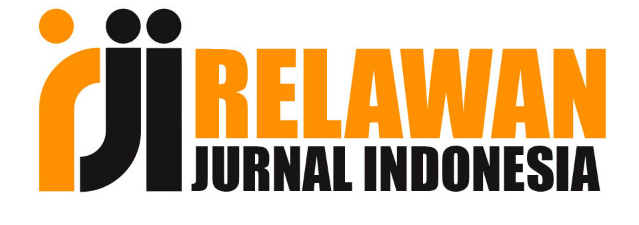Cognitive and Humanistic Psychology in Islamic Education Learning
DOI:
https://doi.org/10.28944/maharot.v8i1.1527Keywords:
cognitive psychology, humanistic, PAI learningAbstract
In studying Islam, cognitive and humanistic plays an important role in internalizing religious values in students and actualizing them in everyday life. This research aims to describe the role of cognitive psychology and humanistic psychology in PAI learning. Researchers in this study used a qualitative approach with a type of library study. The data collection method used is documentation techniques. Next, to analyze the data, descriptive analysis was used. The research results show that cognitive psychology is a learning theory that focuses on the thinking process, where the brain functions in absorbing new knowledge information and carrying out an assimilation process connecting it with initial knowledge to form an understanding. This cognitive theory plays a role in students' activities to understand, digest and assimilate Islamic religious knowledge and store it in memory. Meanwhile, humanistic psychology plays a role in students' efforts to understand their position as servants and their relationship with the Kholik. This research can provide benefits for educators in strengthening students' application of Islamic religious values, so that they can scientifically increase their faith and piety.
References
Akmal, A., Said, N., & Mustami, M. K. (2018). Pembelajaran Pendidikan Agama Islam Humanistik dengan Pendekatan Active Learning di MTsN 1 Bombana. Jurnal Diskursus Islam, 6(3), 401–417. https://doi.org/10.24252/jdi.v6i3.6543
Anwarul. (2023). Metode dalam Pembelajaran Pendidikan Agama Islam (PAI): Menjelajahi Dunia Religius dengan Santai Menyenangkan. PerpusTeknik.Com.
Arbayah. (2013). Model Pembelajaran Humanistik. Dinamika Ilmu, 13(2), 220.
Ariana, M. (n.d.). Teori Kognitif Vygostsky dalam Perspektif Islam. Kompasiana.Com.
Arikunto, S. (2002). Prosedur Penelitian Suatu Pendekatan Praktis. Rineka Cipta.
Azra, A. (1999). Pendidikan Islam, Tradisi dan Modernisasi Menuju Millenium Baru, Cet. I. Logos Wanaca Ilmu.
Dalyono. (2007). Psikologi Pendidikan. Rineka Cipta.
Endang Komara. (2014). Belajar dan Pembelajaran Interaktif. PT Refrika Aditama.
Eveline Siregar. (2011). Teori Belajar dan Pembelajaran. Ghalia Indonesia.
Hambali Alman Nasution & Suyadi. (2020). Pembelajaran Pendidikan Agama Islam Humanistik dengan Pendekatan Active Learning di SDN Nugopuro Gowok. Pendidikan Agama Islam, 17(1), 31–42. https://doi.org/https://doi.org/10.14421/jpai.2020.171-03
Hamzah B. uno. (2006). Orientasi Baru dalam Psikologi Pembelajaran. Bumi Aksara.
Hardi, E., Ananda, A., & Mukhaiyar, M. (2019). Teori Belajar Humanistik Dan Implikasinya Dalam Pembelajaran. Jurnal Pendidikan, 4(2), 53–60.
Hascan, M. A., & Suyadi, S. (2021). Penerapan Teori Belajar Kognitif Pada Mata Pelajaran PAI Tingkat SMP di SIT Bina Insan Batang Kuis. Edumaspul: Jurnal Pendidikan, 5(2), 138–146. https://doi.org/10.33487/edumaspul.v5i2.1548
Hatija, M. (2023). Implementasi Teori-teori Belajar dalam Pembelajaran Pendidikan Agama Islam. 17(02).
Jamil Suprihatiningrum. (2013). Strategi Pembelajaran: Teori dan Aplikasi. Ar-Media.
Jannah, M., & Hamami, T. (2022). Implementasi Teori Psikologi Dalam Pengembangan Kurikulum Pai (Tinjauan Kurikulum Kma No.183 Tahun 2019). Al-Iltizam: Jurnal Pendidikan Agama Islam, 7(1), 35. https://doi.org/10.33477/alt.v7i1.2761
Jhon W. Santrok. (2009). Psikologi Pendidikan. Salemba Humanika.
Moleong, L. J. (2017). Metodologi Penelitian Kualitatif. PT. Remaja Rosdakarya.
Neneng Fauziah, Wahyu Hidayat, W. (2023). Urgensi Dan Paradigma Pendidikan Perspektif Al-Qur’an Surah Al-Alaq. Fikrah: Journal of Islamic Education, 7(1), 16.
Perni, N. N. (2019). Penerapan Teori Belajar Humanistik Dalam Pembelajaran. Adi Widya: Jurnal Pendidikan Dasar, 3(2), 105. https://doi.org/10.25078/aw.v3i2.889
Qodri, A. (2017). Teori Belajar Humanistik dalam Meningkatkan Prestasi Belajar Siswa. Jurnal Pedagogik, 04(02), 188–202.
Sanusi, U. (2013). Pembelajaran dengan Pendekatan Humanistik (Penelitian pada MTs Negeri Model Cigugur Kuningan). Pendidikan Agama Islam-Talim, 11(2), 124.
Sri Esti Wuryani Djiwandono. (2006). Psikologi Pendidikan. Grashindo.
Suprihatin, S. (2017). Pendekatan Humanistik Dalam Pengembangan Kurikulum Pendidikan Agama Islam. POTENSIA: Jurnal Kependidikan Islam, 3(1), 82. https://doi.org/10.24014/potensia.v3i1.3477
Sutarto, S. (2017). Teori Kognitif dan Implikasinya Dalam Pembelajaran. Islamic Counseling: Jurnal Bimbingan Konseling Islam, 1(2), 1. https://doi.org/10.29240/jbk.v1i2.331
Wasty Soemanto. (1987). Psikologi Pendidikan. Bina aksara.
Downloads
Published
Issue
Section
Citation Check
License
Publishing your paper with Maharot : Journal of Islamic Education means that the author or authors retain the copyright in the paper. Maharot granted an exclusive non commercial reuse license by the author(s), but the author(s) are able to put the paper onto a website, distribute it to colleagues, give it to students, use it in your thesis etc, so long as the use is not directed at commercial advantage or toward private monetary gain. The author(s) can reuse the figures and tables and other information contained in their paper published by Maharot in future papers or work without having to ask anyone for permission, provided that the figures, tables or other information that is included in the new paper or work properly references the published paper as the source of the figures, tables or other information, and the new paper or work is not direct at private monetary gain or commercial advantage.
Maharot journal provides immediate open access to its content on the principle that making research freely available to the public supports a greater global exchange of knowledge. This journal is licensed under a Creative Commons Attribution-NonCommercial 4.0 International License.This license lets others remix, tweak, and build upon your work non-commercially, and although their new works must also acknowledge & be non-commercial, they don’t have to license their derivative works on the same terms.
Maharot journal Open Access articles are distributed under this Creative Commons Attribution-Noncommercial 4.0 International License (CC BY-NC). Articles can be read and shared for noncommercial purposes under the following conditions:
- BY: Attribution must be given to the original source (Attribution)
- NC: Works may not be used for commercial purposes (Noncommercial)







